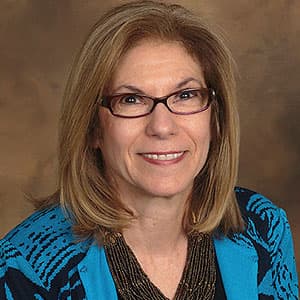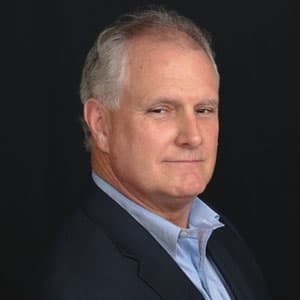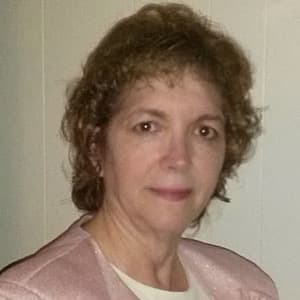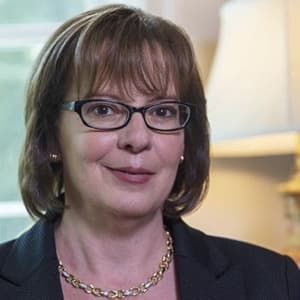The Blog
BBC Interview Series: Elizabeth Larson at Watermark Learning, Inc.
BBC 2017 Speaker Series – Consultant: Elizabeth Larson
In anticipation of her presentation at Building Business Capability in Orlando, Nov. 6-10, 2017, we asked Elizabeth Larson, CEO at Watermark Learning, Inc., a few questions about transforming the business. Check out this interview in relation to her BBC presentation entitled, Project Manager and Business Analyst – Three Steps to Collaboration.
Q: In what ways do you help your client organizations handle business transformation?
A: Our training and coaching services help our clients get the skills they need to help business transformation in many ways. Here are three:
- Influence the decision-makers in their organizations. Our Influencing without Authority training provides tips and techniques for building trust, being courageous, and the importance of prep work.
- Be a strategic partner. Our business relationship management training focuses on skills that are needed for this transformation, including strategic and critical thinking, conflict management (transformation almost always includes conflict), and focusing on bringing value to the organization
- Be a trusted advisor, not an order-taker. Our Consulting Skills training teaches how to determine the business need and then recommend valuable solutions. In other words, how to be the true consultants that transform their organizations to the appropriate scale.
Q: Can you describe the challenges you face or have already overcome in establishing more robust business transformation capabilities for your clients?
A: The biggest challenge we face relates to changing an organization’s culture. Our instructors often hear things like, “this information is great. I just wish our management could hear the same thing.” Although universally true, changing the culture to be more Agile can be particularly difficult.
Q: What are your top suggestions for companies looking to become more agile?
A: Any culture is hard to change, and becoming more Agile is a huge cultural shift for most organizations. My advice is to take the time to really understand what’s happening today, what limitations are caused by the current culture, and what kind of culture best suits the strategic direction of the organization. It’s also important to understand how, if at all, Agile has been adopted in the organization. There are different issues if the adoption has been top-down, bottom up, or some kind of hodgepodge. So understanding the limitations of today’s environment is important to getting Agile implemented consistently and getting everyone on board.
Q: What’s the most valuable thing you’ve learned in the past year?
A: Transparency matters. Integrity matters. Messing up isn’t great, but it happens and when it does, cleaning up the mess has to happen quickly. Match personal goals to organization goals; where there’s a mismatch, unhappiness follows.
Q: What do you see as the most important goal or trend for business analysts and other professionals to keep in mind?
A: BAs need to be conversant in what I’ll call the overall digital transformation umbrella, including such things as big data and predictive analytics, as well as machine learning and the broader AI. They need to understand the ways in which it does and does not make sense for the organization to take advantage of this trend and the effect of these things on business processes.
Q: What’s the latest method/process/tool you’ve implemented to help your client’s business’s operate more effectively? Have you seen any results yet?
A: We have found state diagrams immensely useful. Instead of creating lengthy process models, we have found that using state diagrams is a fantastic way to abstract complex information and be able to present it in ways that are easy for us and for our clients to understand.
Q: If you could go back 5 years in time and give some professional insight or advice to yourself, what would it be?
A: Protect your personal time.
Q: What’s one question you wished you were asked in this interview but were not? And how would you answer?
A: This “interview” is quite extensive as it is.
Q: Sneak preview: Please tell us a take-away that you will provide during your talk at the Building Business Capability (BBC) conference this year?
A: My presentation this year is about collaboration among team members, particularly the BA and PM, although it equally applies to Agile roles, to BA and QA, to BA and developer, to BA and business stakeholder, etc. Here are a few take-aways:
- Titles can be confusing, roles change, but it’s the understanding of what business analysis work is that provides the key.
- Talk about role expectations with other team and business stakeholders. What you think is an obvious aspect of your role may not be at all obvious to them. Where there’s a mismatch in expectations–that’s the area to focus on.
—————————–
Don’t miss Elizabeth’s presentation, Project Manager and Business Analyst – Three Steps to Collaboration, at Building Business Capability on Wednesday, November 8, 2017 from 10:25 am to 11:25 am. Click here to register for attendance.
2018 Program
Connect
Building Business Capability is the only conference that provides insight into Business Analysis, Business Architecture, Business Process, Business Rules, Business Decisions, and Business Strategy & Transformation toward the pursuit of business excellence.
STAY CONNECTED
Event Produced and Organized by Rising Media in association with Business Rule Solutions Copyright © 2010-2018, Rising Media, Inc. All Rights Reserved.











